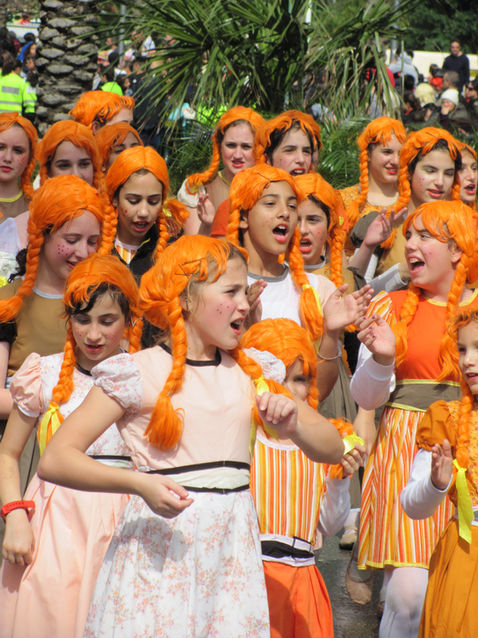
Purim

> Background
Purim falls during the winter in our region. In its ancient form it was probably
celebrated as a kind of new year, due to its proximity to the equal duration of
day and night (March 23). We have very few testimonies with regard to the
holiday’s introduction into our culture. Thus, for example, in the Book of 2
Maccabees we read of a holiday called the Day of Mordechai. The appointed
time and content of the holiday are determined in the Book of Esther. “That is
why rural Jews—those living in villages—observe the fourteenth of the month
of Adar as a day of joy and feasting, a day for giving presents to each other”
(Esther 9:19).
Purim is not a holiday from the Torah, and its acceptance as a holiday of
compulsory sanctity encountered difficulties. The holiday seems to have
become rooted during the Second Temple period, first among the Jews in
exile (mainly in Persia); then, after a long period of time, among the entire
Jewish people. Of the reasons for the difficulty in Purim becoming accepted
as a holiday, and the controversy between the Jews of the Land of Israel and
those in exile we learn from the Babylonian Talmud (Tract Megillah 7a): It is
not a Mitzvah from the Torah, and the destruction of Jerusalem is mentioned
only once in the Book of Esther. The remanant of this dispute can be found to
this day in the unique character of the holiday, on which there is no day of
rest.
> The Story
Purim tells the wonderful story of the Jewish people that survives, despite all
the hatred and difficulties imposed by the Persian regime, and even kills all
those seeking its destruction. The Book of Esther, influenced by Persian
culture (for instance, the names of its heroes) and the holiday itself which
adopted many customs from European culture (the noisemaker, costumes,
hamentashen, and more) attest to the complex attitude developed by the
Jewish people with regard to life in exile: On the one hand, it is influenced by
the foreign majority culture and wishes to continue living among other nations
and under their rule; on the other hand, the Jewish people seeks to maintain
its uniqueness and traditions in the midst of a regime and society that threated
its very existence, both spiritual and physical. The name given the holiday,
Purim, attests to the Jewish people’s fragile existence, being at the mercy of
the arbitrary graces of the regime. By its whim, with a bad night of sleep or an
evil impulse the fate of the people is decided for better or worse.
The ordination of the Amalek chapter to Purim attests to hazal’s conception of the
reason for the existential threat to Jews in exile – anti-Semitism. It should be
no surprise then, at the morally problematic end of the Book, that the Jews kill
the neighbors that on the night before had planned to destroy them.
Throughout the generations, fear of the gentiles, combined with a desire to
live among them, have become a characteristic of the diaspora Jew.
> In Zionism
It was Purim’s carnivalistic elements that received the most attention of the
Yishuv in the Land of Israel. Thus, the precept of the Adloyada (until not
distinguishing) banquet was transformed into a joyful, colorful parade in the
outskirts of Tel Aviv and later on in other cities as well.
Purim, as its name suggests, is the “Holiday of arbitrariness”. The Jewish fate
depends on the goodness of others casting lots, with the Jews awaiting the
results. The Book of Esther is a text of exile. It begins in exile and ends in
exile, with no solution to the Jewish predicament. In this story the Jews are
saved; however, in many others neither Esther nor Mordechai were there to
save them. Zionism seeks to put an end to this mentality of exile, by laying the
foundation of sovereignty (“to be a free nation in our land”) as the organizing
principle of the Jews in their country. From now on, the Jews shall take their
fate in their own hands. Thus, in many ways, Independence Day is the Zionist
response to Purim.
















